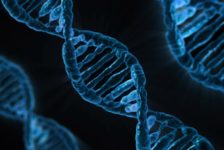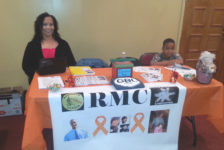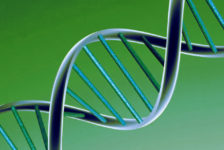What the first COVID-19 vaccine means for patients
By Dr. Tian Zhang
On December 11, the US FDA issued the first emergency use authorization of the Pfizer-BioNTech COVID-19 vaccine, a two-dose vaccine for the prevention of COVID-19 in people aged 16 and older.
Although this vaccine has not specifically been tested in populations of people with cancer, at Duke we would advise people with cancer to undergo vaccination when a vaccine is available, as long as patients have not had prior allergic reactions to components of the vaccine, per the FDA label.
Given the high community transmission of COVID-19 and the potential for severe cases and death, the benefits of the vaccine likely outweigh the risks.
Patients with kidney cancer (especially those whose cancer has spread to other organs) will often be taking targeted treatments or immunotherapies. From our current knowledge, we do not think that these treatments will have any impact on those patients’ reactions to this new COVID-19 vaccine. As long as a vaccine is being offered and is not otherwise contraindicated (see allergic reactions to the components above), patients with kidney cancer are still good candidates to receive the COVID-19 vaccine and protect themselves from developing this potentially severe and deadly infection.
The Pfizer-BioNTech COVID-19 vaccine contains a type of modified messenger RNA (mRNA) that codes for a protein present in severe acute respiratory syndrome coronavirus 2 (SARS-CoV-2), which causes COVID-19. The vaccine prompts your immune system to produce antibodies when they spot that SARS-CoV-2 protein, which helps protect you if the real virus enters your system later.
The FDA’s emergency authorization was based on a trial, published this month in the New England Journal of Medicine, in which 37,706 patients were given two doses of either the vaccine or a salt water placebo. Among the people given the placebo, 169 out of 18,708 (0.9%) of them developed a COVID-19 infection. Among people who received two doses of the vaccine, nine out of 18,559 (0.05%) developed a COVID-19 infection. Therefore, the vaccine has an efficacy of 94.6%.
This is a powerful number. A 94.6% vaccine efficacy means that people who get a vaccine have a 94.6% reduced chance of disease compared with people who aren’t vaccinated.
It’s important to note, though, that someone who is vaccinated can still harbor virus and pass it to others. And some people can’t or won’t be vaccinated. That’s why it’s important to protect yourself and others by continuing to wear masks, avoid crowded areas and large gatherings, and practice good hygiene.
There were some side effects from the vaccine including injection site pain, redness, or swelling, tiredness and achiness, fever, feeling unwell, and swollen lymph nodes. But overall, the vaccine was well tolerated and researchers will continue to follow the trial participants for a few years to see what the long-term effects might be.
The COVID-19 pandemic has been an immense challenge for everyone, including for my patients and my colleagues in healthcare. But the speed and efficacy of this first COVID-19 vaccine is a triumph of science. And there are more COVID-19 vaccines on the horizon that look to be very effective too. I’m hopeful we will soon be on the other side of this pandemic.
Stay well and safe!

Dr. Tian Zhang is a medical oncologist at the Duke Cancer Institute and serves on the KCCure scientific advisory board.








